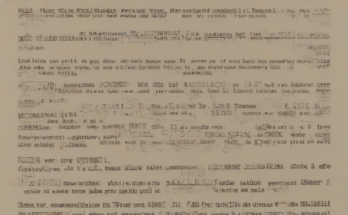Your Life-Saving Guide to Plasma Donation in Baton Rouge, LA
Plasma donation is a vital process that helps save countless lives. This comprehensive guide will equip you with all the necessary information about plasma donation centers in Baton Rouge, Louisiana, eligibility requirements, the donation process itself, potential benefits, and frequently asked questions.
Finding Plasma Donation Centers in Baton Rouge, LA
Several reputable plasma donation centers operate in Baton Rouge, offering convenient locations and competitive compensation. Before visiting a center, it’s crucial to research and compare their services, hours of operation, and donor compensation programs. Many centers have websites providing detailed information, online scheduling options, and contact details.
Consider factors such as proximity to your home or workplace, operating hours that fit your schedule, and the overall reputation of the center. Reading online reviews from previous donors can also provide valuable insights into the donor experience.
Eligibility Requirements for Plasma Donation
Eligibility criteria for plasma donation are stringent to ensure donor safety and the quality of the plasma collected. These requirements typically include:
- Age: Most centers require donors to be at least 18 years old, with some having a minimum age of 16 with parental consent.
- Weight: A minimum weight requirement is usually enforced, typically around 110 pounds, to ensure sufficient plasma volume.
- Health Status: Donors must be in good general health, free from certain medical conditions, and meet specific blood pressure and pulse rate criteria. Pre-donation screenings are conducted to assess eligibility.
- Medication and Substance Use: Recent use of certain medications or recreational drugs may disqualify potential donors. A thorough health history questionnaire is completed to assess this.
- Travel History: Travel to certain regions might temporarily disqualify individuals due to potential exposure to infectious diseases.
- Tattooing and Piercing: Recent tattoos or piercings may result in temporary ineligibility, depending on the center’s policies and the time elapsed since the procedure.
It’s important to be honest and transparent during the screening process. Providing inaccurate information could jeopardize your eligibility and potentially compromise the safety of both you and plasma recipients.
The Plasma Donation Process: A Step-by-Step Guide
The plasma donation process typically involves several steps:
- Registration and Screening: You will begin by completing a registration form, providing your personal information and medical history. A brief health screening will then be conducted, which includes checking your blood pressure, pulse, temperature, and hemoglobin levels.
- Mini-Physical Examination: A qualified healthcare professional will perform a mini-physical examination to assess your overall health and suitability for donation.
- Blood Draw and Plasma Separation: Once approved, a needle will be inserted into your vein, and your blood will be drawn. A machine called a plasmapheresis machine separates the plasma from the other blood components. The remaining red blood cells, white blood cells, and platelets are then safely returned to your body.
- Post-Donation Observation: After the procedure, you will be monitored for a short period to ensure you feel well before leaving the center.
- Compensation and Refreshments: Most plasma donation centers provide monetary compensation for your donation and offer refreshments to help you recover.
The entire process typically takes between one and two hours. The time can vary based on the individual and the efficiency of the center.
Benefits of Plasma Donation
Plasma donation offers numerous benefits, both for the donor and the recipients of the plasma:
- Saving Lives: Plasma is a crucial component in various life-saving treatments, including burn victims, those with immune deficiencies, and individuals undergoing surgeries or battling severe illnesses.
- Financial Compensation: Donors receive monetary compensation, which can be a significant benefit for individuals needing extra income.
- Health Screening: The pre-donation screening provides a free health check-up, potentially identifying any underlying health issues early on.
- Contribution to Research: Donated plasma is used in medical research, advancing our understanding and treatment of various diseases.
- Community Service: Plasma donation is a selfless act that significantly contributes to the well-being of your community and the wider population.
Frequently Asked Questions (FAQs) About Plasma Donation
Here are some frequently asked questions about plasma donation to clarify any remaining doubts:
Q: How often can I donate plasma?
A: The frequency of plasma donation is regulated to ensure donor safety. Most centers allow donations once every 28 days. However, this can vary depending on the center’s policies and your individual health.
Q: Is plasma donation painful?
A: While you might feel a slight pinch during the needle insertion, the process is generally not painful. Many donors describe the experience as similar to a routine blood test.
Q: What are the potential side effects of plasma donation?
A: Minor side effects are possible, such as bruising at the injection site, lightheadedness, or fainting. Severe side effects are rare and typically managed promptly by the center’s staff.
Q: What should I do before donating plasma?
A: Stay well-hydrated by drinking plenty of fluids in the days leading up to your donation. Eat a light meal or snack before your donation appointment to prevent lightheadedness.
Q: Can I donate plasma if I have tattoos or piercings?
A: Some centers might have temporary restrictions on donations following recent tattoos or piercings, depending on the center’s policies and the healing time. It’s crucial to check with the center for their specific rules.
Q: How long does the plasma donation process take?
A: The entire process, including registration, screening, and plasmapheresis, typically takes between one and two hours.
Q: What if I’m nervous about donating plasma?
A: It’s perfectly normal to feel nervous before your first donation. The staff at plasma donation centers are highly trained and will be there to support and guide you through the entire process. Don’t hesitate to ask any questions you have.
Q: How can I find a plasma donation center near me?
A: You can search online for “plasma donation centers near me” or specifically search for centers in Baton Rouge, LA. Many centers have websites with online scheduling options, making it easy to find an appointment that suits your schedule.
Remember, plasma donation is a remarkable act of generosity that can save lives. By understanding the process and eligibility requirements, you can contribute to this life-saving endeavor. If you meet the criteria and are looking for a meaningful way to give back to your community, plasma donation is a wonderful opportunity.



